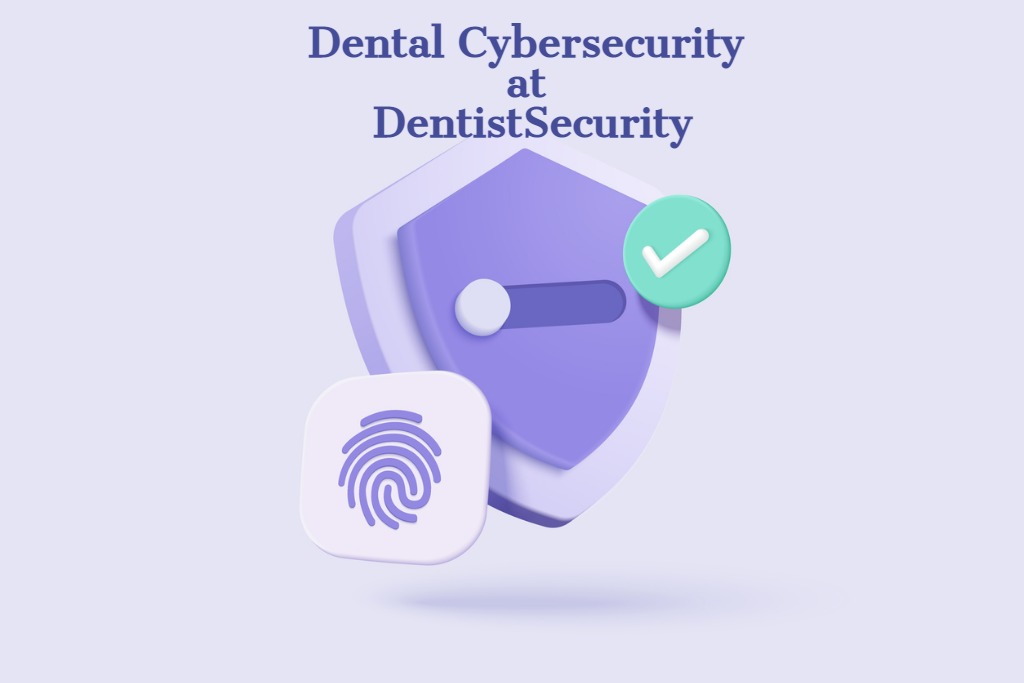
Navigating Cybersecurity Challenges in Dental Practices
Physicians and dentists are now on the frontline for cybersecurity tools. Having the right software and understanding is very important. In an era where patient, trust is paramount, dental practices face a dual responsibility to stay safe. As a doctor, delivering exceptional care and safeguarding confidential information from cyber threats is vital. With the increasing
frequency of cyber attacks targeting dental healthcare providers, it is imperative that robust cybersecurity measures have never been more pressing. In this dental cyber security blog post, we delve into the distinctive cybersecurity challenges confronting dental practices and
present innovative strategies to uphold patient data integrity.
The Threat Landscape – Being Dental Cyber Secure Online:
Make sure to stay up-to-date and understand the risks. For dentists and doctors, this is vital in the modern age. Cyber attacks on healthcare providers pose a looming menace, with dental practices emerging as prime targets. Malevolent actors often set their sights on patient data housed within electronic health records (EHRs), driven by motives ranging from
financial gain to identity theft. Recent reports underscore the staggering costs associated with healthcare data breaches, averaging $9.23 million per incident—a stark reminder of the financial and reputational risks facing the industry. Being Dental Cyber Secure and using the best dentist cybersecurity tools is mandatory now.
Challenges in Dental Data Security and Online Cyber Tools for Dentists:
Securing patient data presents a multifaceted challenge for dental practices. Limited IT resources coupled with reliance on outdated technology render practices susceptible to cyber intrusions. Moreover, regulatory mandates such as the Health Insurance Portability and
Accountability Act (HIPAA) imposes stringent penalties for non-compliance with patient data protection standards, amplifying the stakes for practices. Best Practices for Dental Data Security – Cyber Dentists Security.
- Data Encryption: Safeguard patient data through robust encryption mechanisms, ensuring confidentiality both in transit and at rest.
- Staff Access Controls: Institute stringent access controls to regulatethe dissemination and modification of patient records, limiting access to authorized personnel.
- Software Backup and Recovery: Establish regular data backup protocols to facilitate swift recovery in the event of a breach or data loss, safeguarding continuity of care.
- Regular Audits and Updates: Conduct routine security audits and implement timely software updates to identify and rectify
vulnerabilities. - Staff and Employee Training: Foster a culture of cybersecurity awareness among staff, equipping them with the skills to identify and thwart phishing attempts.
- Keeping Your CyberSecurity Knowledge Up To-date: Make sure to be well informed and stay adaptive. Learn about any updates or information, as well as collaborate with other practices.Staying modern and using the best dental practice cybersecurity
tools - In the realm of dental practice cybersecurity, the consequences of negligence can be dire. Let’s delve into a real-world example that underscores the critical importance of robust cybersecurity measures.Concrete illustrations underscore the imperative of robust cybersecurity measures for dental practices. In one instance, a dental clinic fell victim to a data breach attributable to obsolete software, compromising patient confidentiality.
- Through the implementation of encryption protocols and comprehensive staff training, the clinic fortified its defenses, exemplifying the efficacy of proactive cybersecurity initiatives.
- An Array of Dental Practice Cybersecurity Tools
An array of sophisticated cybersecurity tools exists to fortify your dental practice’s cyber defenses. From robust antivirus software and firewall protection to advanced intrusion detection systems, these tools are indispensable in safeguarding patient data against cyber threats.
Encryption software ensures the confidentiality of sensitive information,while regular vulnerability scanners identify and rectify potential weaknesses in your system.In a landscape shaped by trust and integrity, safeguarding patient data assumes paramount significance for dental practices.- By embracing proactive cybersecurity measures, practices not only preserve patient confidentiality but also bolster trust and mitigate the risk of reputational harm. Compliance with regulatory mandates is not
merely a legal obligation but a testament to the unwavering commitment to patient welfare and trust—a cornerstone of ethical practice.
We are Dental warranty networking with online Dentist Blogging sites such as ,dentistryquestion.com, familydentalcenter.com, dentistblogging.com and many more. We have also partnered with online dental consultancy site denalchat.com and teledental.com
Summary – Cyber Dentists Security Online Information and DentalPatients Data Blog
At DentistSecurity, we specialize in delivering tailored cybersecurity solutions tailored to the unique needs of dental practices. We want to help dentists and patients with their cybersecurity questions. We get asked many cyber dental inquiries. DentistSecurity.com is looking to provide local dentists with data and cybersecurity tools.
We are looking to network withleading IT and cybersecurity professionals. Contact us today to embark on a journey towards fortifying your practice against cyber threats and ensuring unwavering compliance with regulatory mandates. Best Dentist Security Online Chatting and Local Dentistry Cybersecurity Software Update suggestions and info with us. Together, let us uphold the sanctity of patient trust and confidentiality, safeguarding the foundations of ethical practice in an ever-evolving healthcare landscape.

